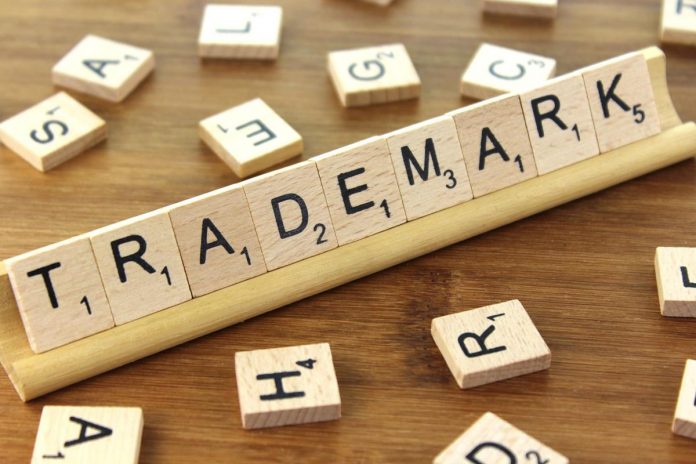This article is written by Tanisha Das studying at Kiit school of law pursuing a Diploma in intellectual property rights, media, and entertainment law. This article has been edited by Ojuswi (Associate, Lawsikho).
This article has been published by Sneha Mahawar.
Table of Contents
Introduction
Trolling is generally associated with someone who maintains online anonymity and effects with the sole purpose of causing trouble. This phenomenon has now extended to the trademark regime through Trademark Trolling. A trademark troll is a person/entity who opportunistically pre-empts and registers sought-after trademarks in anticipation that organizations or individuals may register these marks a few years down the line and that would eventually lead to financial gain for these trolls.
Trademark trolling very commonly comes with the slightest or no intention to lawfully use the mark. Once these marks are registered it serves as a method for exploiting brands through frivolous infringement proceedings or entering into negotiations for obtaining licenses. Since no law dictates them upfront ‘illegal’, it is extremely difficult to combat this menace. Trolls take the aid of these loopholes to extort the rightful owners. This article shall discuss instances of trademark trolling and its defences under the Indian regime.
Perspectives for trademark trolling
Although trademark trolls are similar to their counterparts like patent and copyright trolls, they may come up in a variety of contexts. For example, the trademark troll may register a mark belonging to another company in another country, and then to seek licensing fees or to gain wrongfully the troll may file a lawsuit against the established company. This has happened in the case of French vintner Castel Freres SAS, owner of the CASTEL trademark. In this case, a Chinese company obtained a trademark for the transliteration of CASTEL and successfully blocked Freres Sas’s use of CASTEL in China even though Castel developed the CASTEL mark several decades earlier. It is imperative to note here that China strictly follows the first-to-file trademark registration rule and inevitably permits and legalizes trolling to an extent. To elaborate, the first entity to register the trademark is the rightful owner, despite long-term usage by another. The pitfall of this rule has even made big organizations like Apple Inc., pay hefty compensation to retrieve the right to use the iPad trademark in the Chinese Territory.
In another context, a trademark troll may register a pop culture word or phrase and then send a ‘cease’ notice to individuals and companies using the “mark” on the internet. The troll may then demand royalties, threaten with litigation, and/or put in place a licensing agreement for use of the “mark”. In that scenario, unless the infringer wishes to challenge the lawsuit, paying heed to the troll would be the best recourse. Trademark trolling is difficult to control in file requirement jurisdictions as the registrants are not obliged to show the actual usage of the mark. On the contrary, use requirement jurisdictions like the USA have some checks and balances to create quality control over trademark registrations. These include a prohibition on naked licensing and irregular assignments, showing actual use of the mark by a person as a prerequisite for registrations. Additionally, they have effective use of cancellation proceedings at the USPTO that constrain marks that have no prolonged use.
Countermeasures to trademark trolling in India
Attempts at trademark trolling have happened in India as well, recent ones being associated with Sony’s PS-5 wherein, an Indian individual registered the mark ‘PS-5’ within a few months of the launch announcement by the Company. With the due course, however, the individual withdrew the application which proves deliberate malice on his part. The Indian judicial discourse is filled with insights and the case of H&M; Hennes & Mauritz Ab & Anr v. HM Megabrands Pvt. Ltd. & Ors was one of the first instances of trademark trolling in India. The court issued an injunction against the use of ‘HM Megabrands’ and condemned the defendants for indulging in a clear case of trademark trolling.
It is imperative to understand how individuals can register trademarks when similar/identical marks exist. Indian trademark law also allows for registration of the trademarks on a proposed to-be-used basis. If two or more identical marks have been filed for future use, the trademark with an earlier application date is given priority. This gives leverage to the trolls as demonstrating prior usage is not a mandate under Indian trademark law.
A question that may arise in the minds of the readers and must certainly be addressed is as follows – what recourse does the Indian law provide in case of trademark trolling? There may not be any law that directly curbs trademark trolling however, the Indian statute recognizes Prior user rights as opposed to prior registration. Prior user rights are a subset of the first-to-use rule whereby the first user of the mark is the owner and thus, shall enjoy exclusive and superior rights on the Trademark. Section 34 of the Trademark Act, 1999 says that nothing shall violate the rights of the individual who is the actual owner of a similar or identical actual to the trademark that has been registered by the proprietor.
The Fundamental requisites of this provision are (i) the trademarks in contention must belong to the same class of goods or services as per the NICE classification, (ii) the mark must be used constantly and continuously throughout India without any interruption, and lastly, (iii) such mark should be in use before the date of registration or before use of the latter mark.
To put forth an illustration – ‘A’ has been using its mark continuously since 2008. ‘B’ registers a similar/identical mark in the same class as ‘A’ in the year 2015. Considering that ‘A’ has been a prior user of the mark and the registration of ‘B’s mark took place later, ‘A’s rights are protected under Section 34 of the Trademarks Act, 1999. In continuation of the same illustration, if, during the application, ‘B’ claimed that their usage of the mark dates before 2008, then ‘A’ would not possess any protected rights under the said section.
The first-to-use principle has been strengthened in India through various case ratios. A landmark case in this context is M/S Superflo Pvt Ltd. v. M/S Sandhyamani Associates wherein the court acknowledged the plaintiff’s prior user right. The court believed that delay and latches are not solid grounds for subserving prior user rights. Courts have time and again given precedence to prior users which is evident through cases such as Century Traders v. Rohan Lal Duggar Co. and Milmet Oftho Industries v. Allergan Inc.
Cybersquatting : trademark trolling in contemporary times
In the new age economy, to gain quick popularity it is pertinent for the companies to have an easily traceable name, logo, and even a web address. This requires registration of a particular domain name and website under the domain name system (DNS). Generally, the domain name of a company represents its intellectual property in the form of a trademark, words, and phrases associated with the company whether trademarked or not. Domain names are allocated on a ‘first come first serve’ basis. This benefits people who are not real owners and use domain names of well-known trademarks to gain wrongfully. However, in recent times domain names have been considered more than just a mere internet address and hence demand equal protection like any other intellectual property. This was the rationale of the court in the case of Marks and Spencer v. One in a million. As numerous commercial enterprises trade and make them visible through domain names and thus, it has also come under the radar of conflicting controversies like domain name piracy and cyber-squatting.
In cybersquatting domain names of previously established entities are reserved by the squatters with the sole intent of benefiting from their goodwill. The squatters may also register the domain name of a famous entity and later on sell the same in exchange for huge royalties. Yahoo! Inc v. Akash Arora was an instance where Indian courts dealt with cyber-squatting. In the case the plaintiff registered as the owner of “Yahoo.com” and with the help of the courts he was able to issue a restraining order to the defendant who was selling services with the domain name “Yahooindia.com”. Similarly, in Acqua Minerals Ltd. v. Pramod Borse and Another, the Court thought that the burden of proof of legitimate use of the domain name lies with the trolls. If they are unable to prove their valid usage, it would be inferred that their mark was to invariably profit off from the name and goodwill of the entity.
Conclusion
Through the above discussion, it is clear that trademark trolling is not very far from being called a menace in India. With the inevitable growth of businesses around us, it is equally necessary for redressal systems to be set up for entities that are crippled by it. Presently, an aggrieved party has only one option to redeem their rights that is, through the courts. To combat trolls effectively a quorum must be set up that would resolve disputes promptly. Steps such as hiking the registration fees have been brought into force through amendment of the Trademark Rules 1999, to curb frivolous trademark registrations. Having said that, India also largely hinges on the common law remedy of “passing off” and the trans-border reputation principle which makes it even difficult to maliciously register well-known trademarks; even if registered it will be heavily opposed. All of these legalities are in favour of the original owners and against the squatters. But there is still room for certain tweaks to be made to our legal system to achieve a robust IP regime that can enhance international commercial expansion in India. The only caveat that businesses need to adhere to is due diligence and farsighted business planning.
References
- https://iprlawindia.org/addressing-the-concern-of-trademark-trolling-recognition-of-the-rights-of-the-prior-user-and-the-way-ahead/
- https://spicyip.com/2020/11/trademark-trolls-perspectives-pitfalls-and-the-way-forward.html
- https://www.lexology.com/library/detail.aspx?g=18eb14d5-a367-4119-8e23-2abb9166c2fc
- https://www.mondaq.com/india/trademark/808562/the-menace-of-trademark-trolls
- https://www.trademarksandbrandsonline.com/article/tackling-trademark-trolls
Students of Lawsikho courses regularly produce writing assignments and work on practical exercises as a part of their coursework and develop themselves in real-life practical skills.
LawSikho has created a telegram group for exchanging legal knowledge, referrals, and various opportunities. You can click on this link and join:
Follow us on Instagram and subscribe to our YouTube channel for more amazing legal content.
 Serato DJ Crack 2025Serato DJ PRO Crack
Serato DJ Crack 2025Serato DJ PRO Crack












 Allow notifications
Allow notifications


